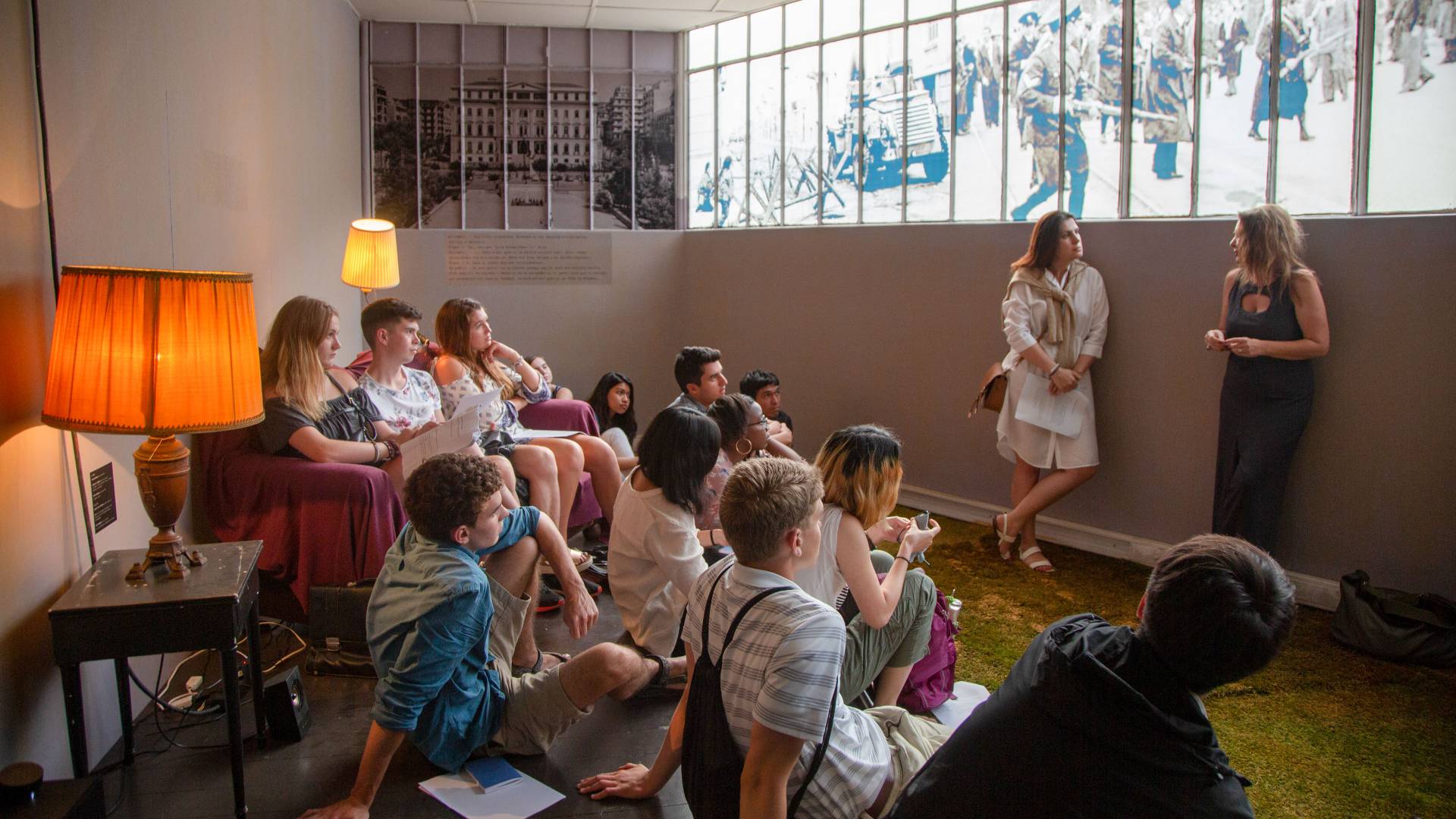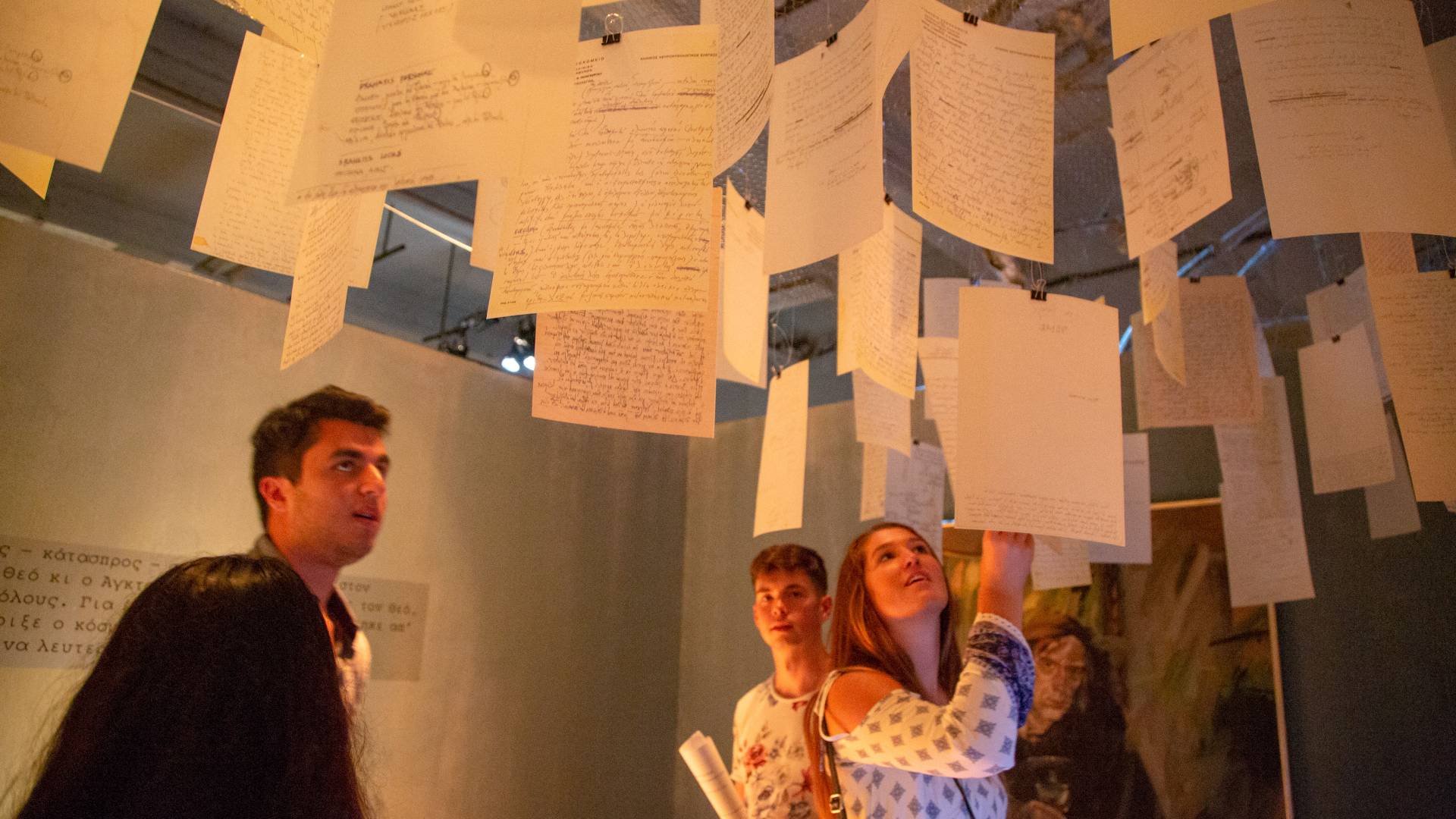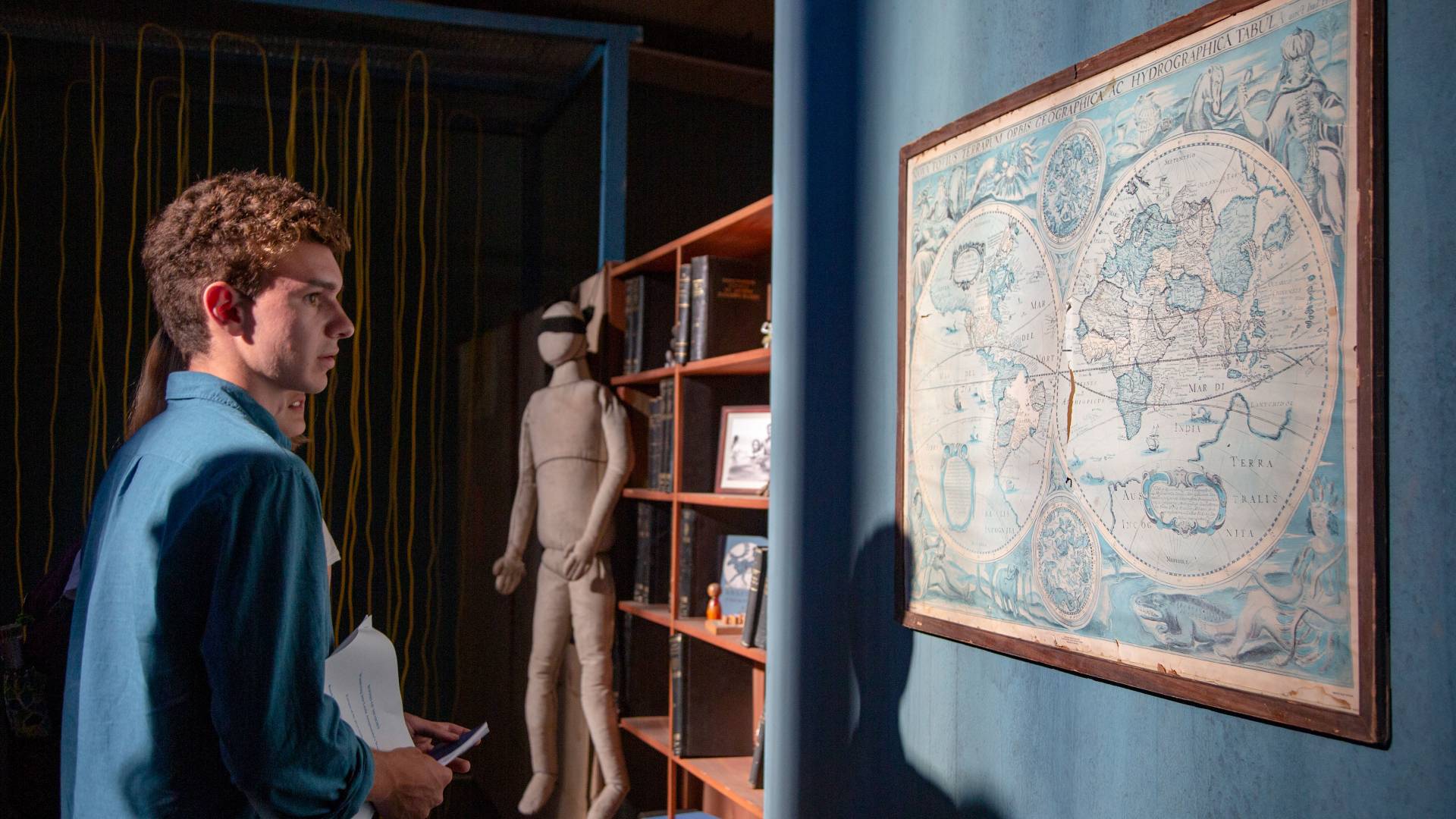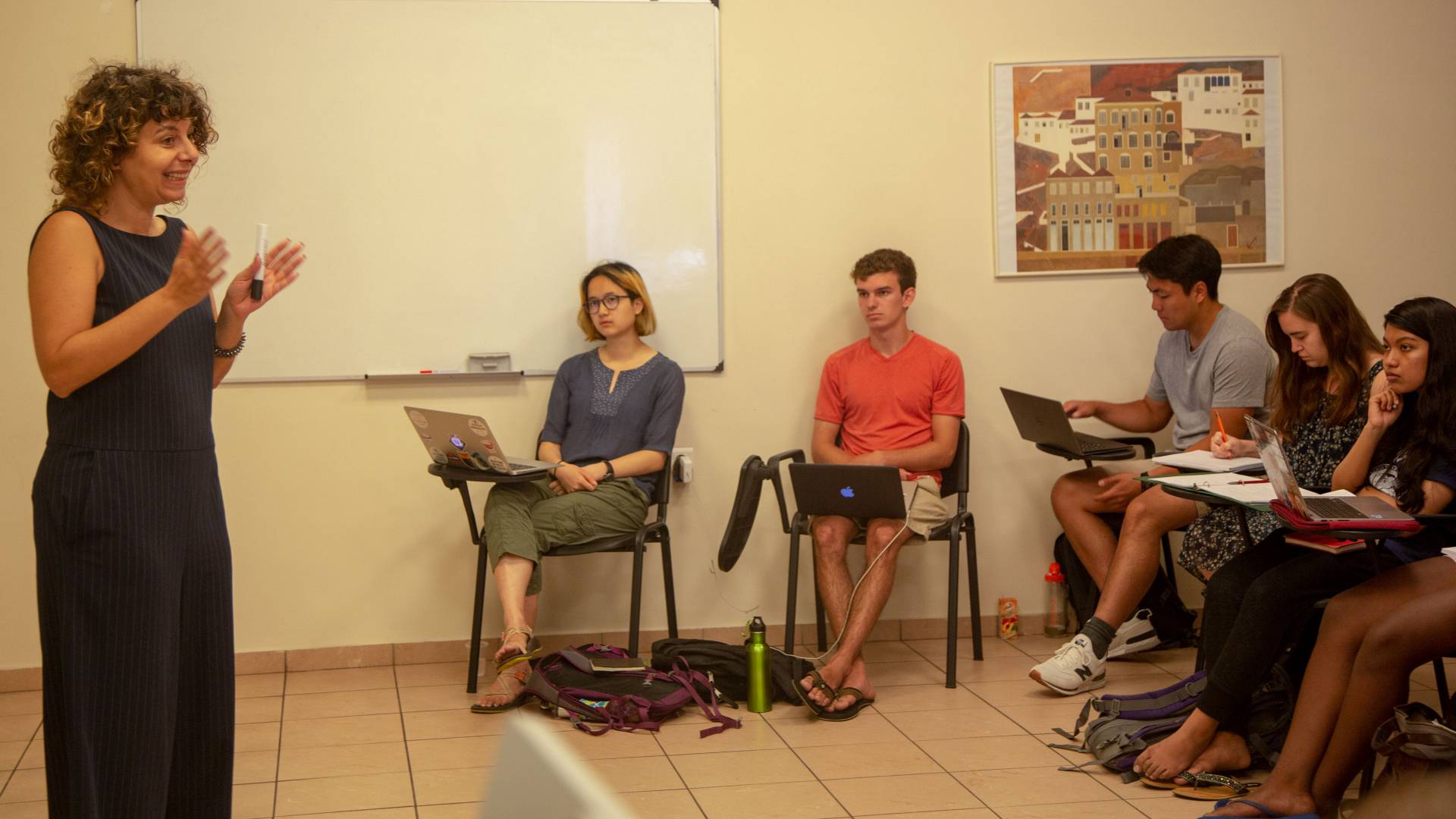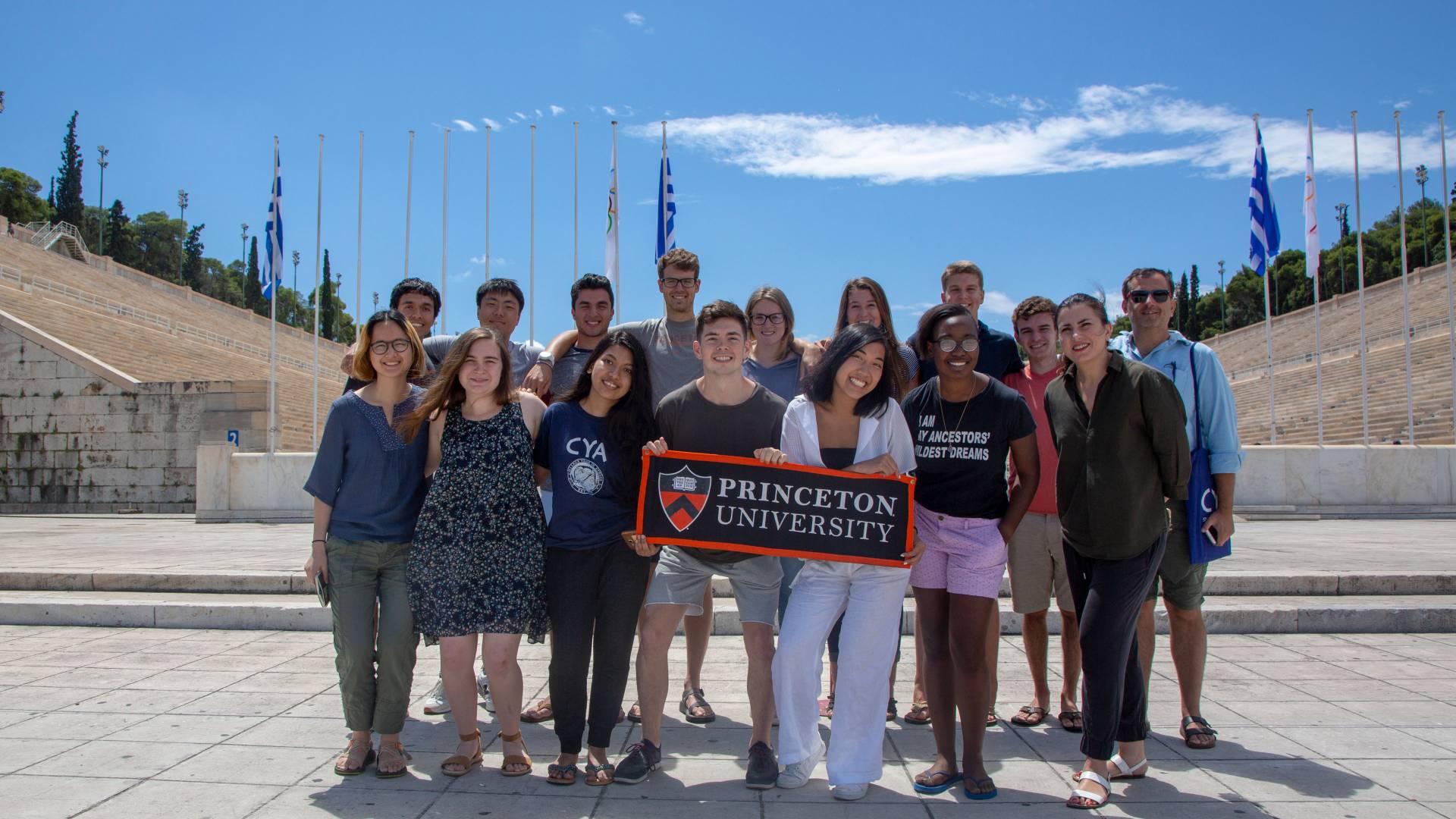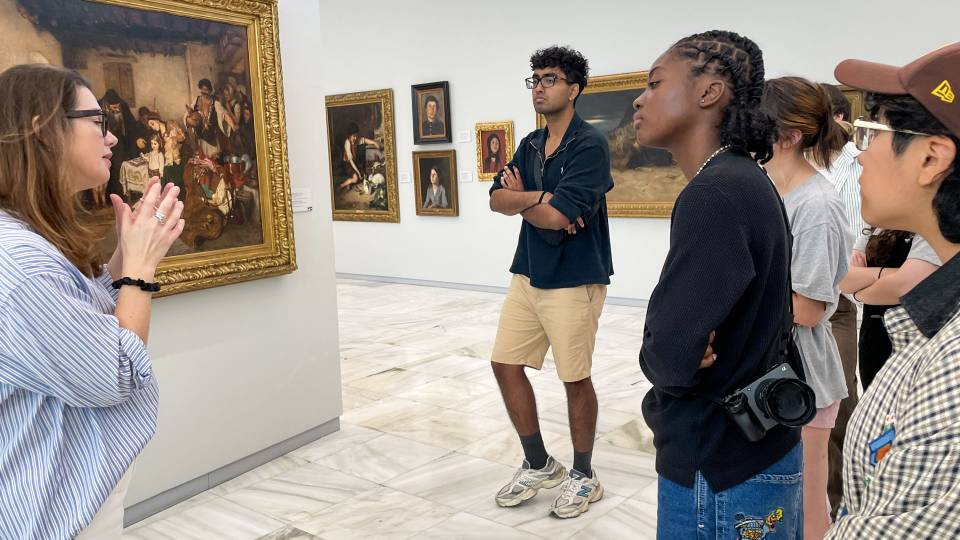In the Princeton Institute for International and Regional Study (PIIRS) Global Seminar “Athens Now: Culture and Politics in the Urban Space,” students experienced the Greek capital’s thriving cultural scene and gained an understanding of Athens that goes beyond ancient ruins and Aristotle.
Led by Effie Rentzou, associate professor of French and Italian, the six-week seminar introduced 14 undergraduates to the unique culture that emerged in Athens after the onset of the financial, political and social crisis that began in 2008. The seminar was the sixth consecutive global seminar in Greece co-sponsored by the Seeger Center for Hellenic Studies, with the generous support of the Erric B. Kertsikoff Hellenic Studies Fund.
To help contextualize contemporary Athens, the course began with a short overview of the city’s rich history and a trip to the Parthenon. For many students, this history was their only frame of reference going into the seminar.
“I wanted to get a better sense of modern Athens because I have only ever known about the geographical city in its ancient setting,” said sophomore Elliot Galvis.
Will Brown, a junior, agreed: “Having taken some coursework on ancient Greece, I wanted to learn more about the modern context and how the legacy of the past influences life today.”
“The goal of the class was to introduce students to the cultural life of a contemporary metropolis and see if and how art and literature respond to extreme social, political and financial change," said Rentzou. "Understanding the history of the place was, of course, important, to situate the present. But our focus was on the present and the way that cultural production now re-frames the past and activates historical moments as part of this present.”
Each week, students explored Athens’ contemporary cultural life through specific works in different media, such as literature, film, art, performances, graffiti and music. They also studied institutions that manage and disseminate culture to audiences, both traditional ones, like museums and galleries, and new ones that have emerged from the current sociological landscape, such as collectives and cultural activists.
After reading about and discussing these media, students had the opportunity to experience them firsthand through excursions all over Athens, from museums and theaters to warehouse galleries to graffitied walls.
“When we learned about something in class, we often went to the corresponding part of the city to actually see it,” said Isaac Martinez. “This kind of learning experience is very rare, and I’m glad I received it.”
During weekly workshops at the Princeton Athens Center, the group was also able to speak with the key figures in Athens who are creating and disseminating this culture. "We met with artists, theater directors, writers, architects, curators and filmmakers, and discussed issues pertaining to their work, which we had read or seen beforehand,” said Rentzou. “The professionals were amazed at the questions the students asked; they felt heard and like what they are doing has impact. The synergy between the arts and the academy was palpable.”
From these discussions, students also gleaned an understanding of the role Greece’s crisis has played in the city’s cultural scene, and the complex implications it has had on society.
“Learning about and experiencing contemporary Athens changed the way I think about Greek culture,” said junior Ryan Hutzley. “I now have a more comprehensive understanding of the complexities surrounding Greek identity, as well as the delicate relationship between Greek citizens and the government.”
Sophomore Rylie Pease said, “I realized current Greek culture is not really based on the ancient history of the country; it seems to me as though the culture is based on more recent historical events, as well as the country’s current political and economic situation.”
She added: “This was surprising to me because when you think about Greece, the first thing that comes to mind is the ancient history — the birthplace of democracy and the Greek gods — but I came to realize this is a stereotype and Greek culture is about so much more.”
As a capstone to the course, students presented a final project on a specific aspect of contemporary Greek culture they were most interested in. The project topics ranged from “The Graphic Novel and Culture in Athens” to “Neo-Byzantine Graffiti.”
“My favorite memory of the seminar was when we all gave our presentations the last week, and I got to see how everyone was interested in a different part of Greek culture,” said Martinez. “Everyone gave very informative presentations, and it was nice to see what the group was able to learn as a whole in just over a month.”
“The students on this program were bright, diligent and dedicated,” said Rentzou. “In six weeks, they managed to have a very informed perception of what’s going on in Greece beyond stereotypes and superficial assumptions. By the end of the course it was clear to all that what happens in Athens goes beyond the local and speaks to global concerns.”
